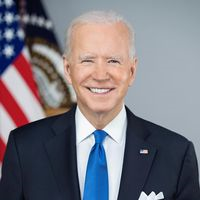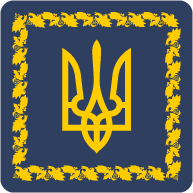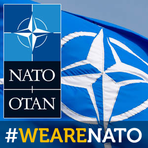Ukraine's Call for Unrestricted NATO Support Met with Differing Reactions
July 18, 2024, 4:04 pm

Location: United States, District of Columbia, Washington
Employees: 1001-5000
Total raised: $500K
In a bold move, Ukraine has urged NATO allies to lift restrictions on its use of long-range weapons against targets in Russia, citing it as a potential "game-changer" in its ongoing conflict with Moscow. The plea, made at a recent summit in Washington, received mixed reactions from NATO members, with some promising additional aid and support for Ukraine's path to NATO membership, while others expressed reservations about the extent of weapon use.
The differing approaches within NATO on how Ukraine can utilize the weapons donated to them have come to light, with some allies allowing strikes deep inside Russia, while others, like the US, imposing more limited restrictions. President Biden emphasized the need for strategic decision-making on a day-to-day basis, highlighting the complexities of the situation.
Meanwhile, China has vehemently criticized NATO's support for Ukraine, labeling it biased and malicious. The escalating tensions between China and NATO, particularly regarding China's role in enabling Russia's actions in Ukraine, have added another layer of complexity to the geopolitical landscape.
The recent visits of Hungary's Prime Minister Viktor Orbán to Russia, China, and former President Trump at Mar-a-Lago have raised concerns about the unity of Western allies. Orbán's pursuit of a separate foreign policy, including endorsing Trump's candidacy and expressing hopes for a peaceful resolution to the conflict in Ukraine, has sparked debate within the EU and NATO.
As the US presidential election looms, questions about the impact of potential leadership changes on Ukraine's support and NATO's cohesion have surfaced. President Biden's approach, contrasting with that of former President Trump, has underscored the delicate balance of foreign policy decisions in the face of evolving geopolitical dynamics.
The interactions between world leaders, the shifting alliances, and the implications for Ukraine's future highlight the complexities of international relations in a rapidly changing global landscape. As Ukraine continues to navigate its path forward, the responses from NATO allies, China, and individual leaders like Orbán and Trump will shape the course of the conflict and the broader geopolitical landscape.
The differing approaches within NATO on how Ukraine can utilize the weapons donated to them have come to light, with some allies allowing strikes deep inside Russia, while others, like the US, imposing more limited restrictions. President Biden emphasized the need for strategic decision-making on a day-to-day basis, highlighting the complexities of the situation.
Meanwhile, China has vehemently criticized NATO's support for Ukraine, labeling it biased and malicious. The escalating tensions between China and NATO, particularly regarding China's role in enabling Russia's actions in Ukraine, have added another layer of complexity to the geopolitical landscape.
The recent visits of Hungary's Prime Minister Viktor Orbán to Russia, China, and former President Trump at Mar-a-Lago have raised concerns about the unity of Western allies. Orbán's pursuit of a separate foreign policy, including endorsing Trump's candidacy and expressing hopes for a peaceful resolution to the conflict in Ukraine, has sparked debate within the EU and NATO.
As the US presidential election looms, questions about the impact of potential leadership changes on Ukraine's support and NATO's cohesion have surfaced. President Biden's approach, contrasting with that of former President Trump, has underscored the delicate balance of foreign policy decisions in the face of evolving geopolitical dynamics.
The interactions between world leaders, the shifting alliances, and the implications for Ukraine's future highlight the complexities of international relations in a rapidly changing global landscape. As Ukraine continues to navigate its path forward, the responses from NATO allies, China, and individual leaders like Orbán and Trump will shape the course of the conflict and the broader geopolitical landscape.

